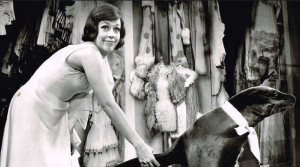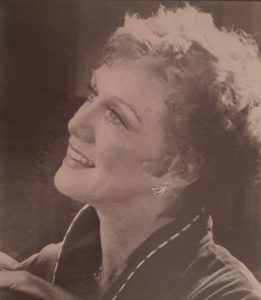Podcast: Play in new window | Download (Duration: 1:35:15 — 107.5MB) | Embed
Subscribe: Spotify | TuneIn | RSS | More
Last summer, I produced a miniseries of episodes on Countermelody entitled “Forgotten Broadway,” the third and final segment of which was originally published as a bonus episode for my Patreon supporters. This week, my last one for the moment in New York City, is a busy one, so I have decided to pay tribute to the city by publishing that third Forgotten Broadway episode for all of my listeners. As I was preparing the series last summer, I enlisted the input and expertise of my dear pal John Coughlan. Like the first two episodes in the sequence, this one is once again, a veritable potpourri of delights, vocal, interpretive, and musical. It begins with a tribute to birthday icon Carol Burnett, who, at the beginning of her career, appeared in two different Broadway musicals, the second of which, 1964’s Fade Out Fade In, is featured. Additional shows presented include, among many others, Salvation, Raisin, Mack and Mabel, Redhead, I Had a Ball, Breakfast at Tiffany’s, Baker Street, performed by such favorites as Lisa Kirk, Melba Moore, Gwen Verdon, Robert Weede, Mary Tyler Moore, Rosemary Clooney, Liz Callaway, and Peggy Lee, alongside such lesser-known lights as Diana Davila, Walter Willison, Salena Jones, and Gilbert Price. In addition, there is the “added plus” [sic] of Bea Arthur delivering a comic monologue from the 1955 Shoestring Revue that will have you in absolute stitches. And just for the gays (and all those with equally good taste), Judy and Liza each stop by, Judy to deliver a Frank Loesser show-stopper, while Liza offers more of “A Quiet Thing,” from her first Broadway show Flora the Red Menace.
Countermelody is a podcast devoted to the glory and the power of the human voice raised in song. Singer and vocal aficionado Daniel Gundlach explores great singers of the past and present focusing in particular on those who are less well-remembered today than they should be. Daniel’s lifetime in music as a professional countertenor, pianist, vocal coach, voice teacher, and journalist yields an exciting array of anecdotes, impressions, and “inside stories.” At Countermelody’s core is the celebration of great singers of all stripes, their instruments, and the connection they make to the words they sing. By clicking on the following link (https://linktr.ee/CountermelodyPodcast) you can find the dedicated Countermelody website which contains additional content including artist photos and episode setlists. The link will also take you to Countermelody’s Patreon page, where you can pledge your monthly support at whatever level you can afford. Bonus episodes available exclusively to Patreon supporters are currently available and further bonus content including interviews and livestreams is planned for the upcoming season.

